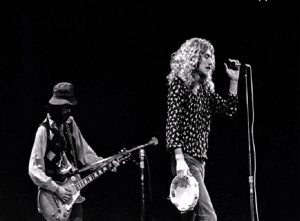Famous 70’s Rock Bands That Tried To Go New Wave Blindly

Youtube / PhilGenesisDB
In the late ’70s and early ’80s, several bands known for their classic rock roots took bold steps to stay current amidst the changing music landscape. With disco’s popularity waning and new wave’s catchy simplicity gaining a foothold, these groups sought to reinvent their sounds. These adjustments ranged from subtle incorporations of the new style to complete musical overhauls, leading to varying degrees of success and acceptance among their established fan bases and potential new listeners.
Four famous bands from the 1970s tried to mix their music with new wave to stay relevant.
Wings, Back to the Egg (1979)
In the twilight of the 1970s, Wings attempted to pivot with the times on their album “Back to the Egg.” Amid the transition from disco to new wave, Paul McCartney and his band ventured into uncharted territory, consciously omitting their disco-influenced track “Goodnight Tonight” to sculpt an album that resonated with the burgeoning new wave sound. Tracks like “Getting Closer” marked a departure from Wings’ typical sound, embracing a more contemporary vibe under the guidance of Chris Thomas, a producer renowned for his work within the new wave genre. Despite these efforts and the creation of a fresh, innovative sound, “Back to the Egg” did not captivate a broader audience, ultimately becoming the band’s final studio album before their dissolution in 1981. However, this marked not an end but a transition for McCartney, who would continue to enjoy success in the subsequent decade.
The Kinks, Low Budget (1979)
As the 1970s drew to a close with disco’s dominance on the wane, The Kinks demonstrated their chameleonic ability to adapt to the evolving musical landscape with “Low Budget.” The album highlighted the band’s flexibility and willingness to experiment with new styles, most notably in their creation of “(Wish I Could Fly Like) Superman,” a track that responded to the demand for danceable music while infusing it with The Kinks’ signature humor and a hint of punk’s rebellious energy. This strategic blend of rock and punk elements with an eye on the new wave trend paid off, elevating “Low Budget” to become one of the band’s most commercially successful albums and proving their enduring relevance in a rapidly changing music scene.
Genesis, Abacab (1981)
Genesis’ 1981 release, “Abacab,” marked a significant turning point for the band, diverging sharply from their established complex, progressive rock roots to venture into the synthesizer-driven sounds of new wave. This drastic shift in musical direction was a gamble that saw the band simplifying their compositions and exploring a sound that was starkly different from their previous work, with tracks like “Dodo” and “Who Dunnit?” challenging the expectations of their long-time fans. While the album’s new direction was met with mixed reactions, it successfully broadened Genesis’ appeal, securing their first Top 10 album and embarking on a path that would lead to further success in the mainstream pop arena.
Rush, Signals (1982)
With “Signals” in 1982, Rush embraced the burgeoning trend of synthesizers and new wave influences, stepping away from their guitar-driven progressive rock foundations. Inspired by the synth elements introduced in “Vital Signs” from their previous album, “Signals” saw the band integrating shorter song formats and blending in reggae and new wave influences, as evidenced by the success of “New World Man.” Although the album did not achieve the commercial heights of its predecessor, “Moving Pictures,” it marked the beginning of a successful series of albums for Rush. Their willingness to experiment and adapt to new musical trends without completely abandoning their distinctive style showcased the band’s versatility and resilience in an ever-changing musical landscape.















